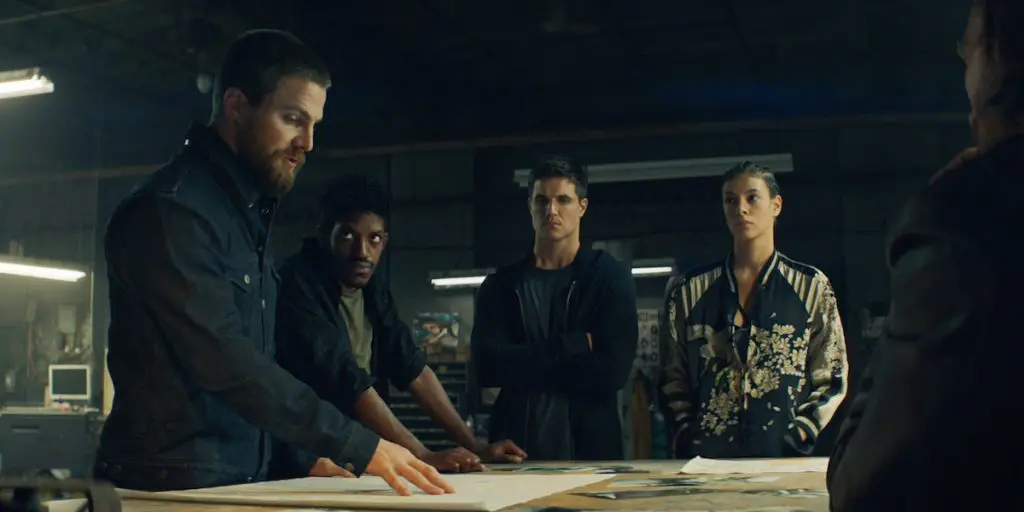Summary
A promising sci-fi thriller with long-term potential in its ideas, currently proving to be a major hit on Netflix.
Some fun facts about the Stephen and Robbie Amell-starring sci-fi thriller Code 8. One: It began in 2016 as a same-named viral short before becoming a feature-length version entirely crowdfunded on Indiegogo thanks to the popularity of that short. And two: It’s currently one of the most popular trending movies on Netflix, which in our current climate means it’s one of the most popular movies in the entire world.
All of this is interesting, but how’s the film? It’s… fine! The best word would be promising, I suppose; it introduces a world rich with intriguing sci-fi concepts and possibilities but only really explores it on the level of a basic thriller. For instance, it’s set in an alternate reality in which a percentage of the world’s population is born with superpowers, which is pretty cool, and those individuals are deeply mistrusted and discriminated against, which is very X-Men. Robbie Amell plays Connor Reed, a powered individual, who is sick of having to scrounge for honest work and instead takes a lucrative offer from Garrett (Stephen Amell), a representative of Marcus Sutcliffe (Greg Bryk), a notorious drug lord in the overstuffed metropolis of Lincoln City where all this goes down.
That’s obviously a bit of a bog-standard crime-thriller setup and is mostly what lets Code 8 down from being a better allegory for the economic anxieties and social alienation of the working class. While the whole thing’s obviously reminiscent of the aforementioned X-Men, it has less in common with glossy superhero properties than it does with, say, District 9. Director Jeff Chan and his screenwriter Chris Pare are careful to ensure that the notion of superpowers are secondary to the plights of a blue-collar workforce, making for a grittier and more grounded variation of the unsubtle idea that difference tends not to be wholly welcomed by the powers that be.
Since it’s not attempting to operate on a very sophisticated level, Code 8 has likable lo-fi energy that really works with its thematic undercurrents. On the one hand, it isn’t big and showy because it was entirely crowdfunded and thus couldn’t be, but one gets the sense it wouldn’t have been anyway – its vision of superpowers as essentially utilitarian life-hacks is a uniquely mundane version of a done-to-death idea that I, for one, really appreciated. And it helps to give the film’s largely nondescript characters some everyman charms that the script doesn’t necessarily afford them.
There were always plans to do more with Code 8 and its compelling working-class world, and now that the film is picking up major attention on Netflix, perhaps that’s more likely than ever. This, as a standalone project, is far from great, but it has my respect for telling a complete story that allows for a continuation rather than begging for one. In these trying times, more low-key genre films such as this are going to be discovered, and if there’s anything positive to be taken from our current global strife, perhaps it’ll be more attention paid to things that never got it the first time around.




